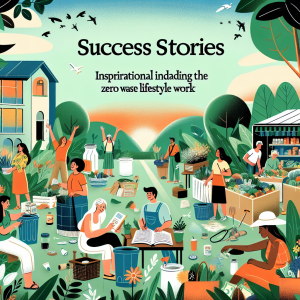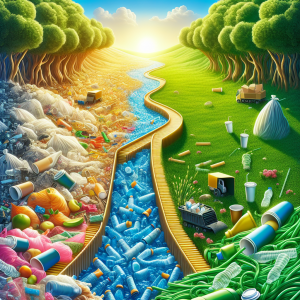Understanding Self-Sufficiency
The term “off the grid” often conjures images of remote cabins and rugged wilderness, but the journey to self-sufficiency is far more nuanced and accessible to many. Off-grid living involves detaching from public utilities such as electricity, water, and often grocery supply chains. This lifestyle emphasizes independence, sustainability, and a deeper connection to nature. Striving for self-sufficiency can mean harnessing solar power, growing one’s food, capturing rainwater, and minimizing waste.
The Appeal of Off-Grid Living
In an increasingly interconnected world, the allure of a simpler, more self-reliant lifestyle holds strong appeal. Many choose this path to reduce their carbon footprint, cut down living expenses, or gain a sense of personal fulfillment. The self-sufficient lifestyle offers a break from modern life’s hustle, encouraging mindfulness and a re-prioritization of needs versus wants. Moreover, advancements in technology make off-grid living more accessible than ever before.
Setting Up Your Off-Grid Home
Transitioning to off-grid living begins with suitable location selection. While urban areas pose challenges, rural environments offer more space and often, fewer regulatory constraints. Key considerations include access to sunlight, water sources, and fertile land for agriculture. Developing an energy plan is next. Solar panels, wind turbines, and micro-hydroelectric systems are popular choices, each with distinct benefits and installations costs.
Sustainable Food Production
Central to off-grid living is sustainable food production. Creating a backyard garden provides fresh produce and reduces grocery bills. Crop selection should be based on climate, soil quality, and dietary preferences. Complementary practices like permaculture enhance biodiversity and soil health. Livestock such as chickens or goats offer meat, milk, and eggs. They also contribute to soil fertility through manure, closing natural resource loops.
Water Management and Conservation
Water independence is crucial in self-sufficient living. Rainwater harvesting systems capture precipitation for filtering and storage. Wells provide underground water but may require a pump and a purification system. Greywater recycling—repurposing water from sinks and showers—can further optimize water use. These methods, combined with conservation practices such as efficient plumbing fixtures and water-conscious behaviors, ensure a reliable water supply.
Renewable Energy Solutions
Harnessing renewable energy is a cornerstone of off-grid living. Solar panels convert sunlight into electricity, powering homes without the environmental impact of fossil fuels. Properly assessing energy needs and solar potential ensures optimal solar array configuration. Wind turbines can supplement energy production in windy areas. Both systems can be connected to batteries, storing energy for overcast or windless days. Consistent monitoring and maintenance are necessary for efficient energy generation.
Waste Management Strategies
Living off the grid demands robust waste management strategies. Composting transforms organic waste into valuable fertilizer. Building compost bins or pits facilitates this natural process, reducing landfill waste and enhancing soil health. Recyclable materials can be repurposed within the homestead. Non-recyclables should be minimized at the source by conscientious purchasing. Burning waste cautiously or taking it to local drop-off centers are alternative solutions for disposal.
Challenges of Off-Grid Living
While rewarding, off-grid living presents challenges. Adapting to a more manual lifestyle requires resilience and problem-solving. Weather fluctuations can impact energy production and water availability, necessitating contingency plans. Initial setup costs, though offset over time, can be substantial. Legal requirements for land use, building codes, and renewable energy systems vary and must be navigated carefully. Despite these hurdles, many find the lifestyle’s empowerment and harmony with nature well worth the effort.
The Role of Technology in Off-Grid Living
Technological advancements have significantly eased the transition to self-sufficient living. Modern solar and wind technologies are more efficient and affordable than ever. Home automation systems can optimize energy usage and monitor resources remotely. Property management apps aid in tracking weather patterns, garden cycles, and maintenance schedules. Drones offer aerial assessments of expansive properties, aiding in security and planning. Embracing technology carefully complements the off-grid ethos of simplicity and self-reliance.
Building a Community and Sharing Knowledge
Though off-grid living is often associated with solitude, communities of like-minded individuals have flourished. Cohousing arrangements allow shared resources and knowledge, promoting communal resilience. Online forums and social media platforms enable connections across distances, facilitating the exchange of tips and experiences. Workshops and local meet-ups provide opportunities for learning skills such as gardening, carpentry, and renewable energy installation. Through community and collaboration, the journey to self-sufficiency becomes more attainable.
Financial and Personal Impacts
Adopting an off-grid lifestyle can significantly impact finances and personal well-being. While the upfront cost may be high, long-term savings from utilities and food often offset the initial investment. Learning new skills fosters self-reliance and confidence, attributes that enhance overall personal growth and satisfaction. Reducing the dependency on external systems provides a sense of security in uncertain times. Furthermore, living closer to nature often leads to improved mental health, with the tranquility of natural surroundings fostering a more balanced lifestyle.


